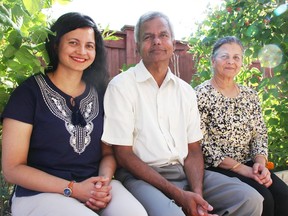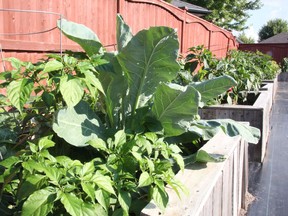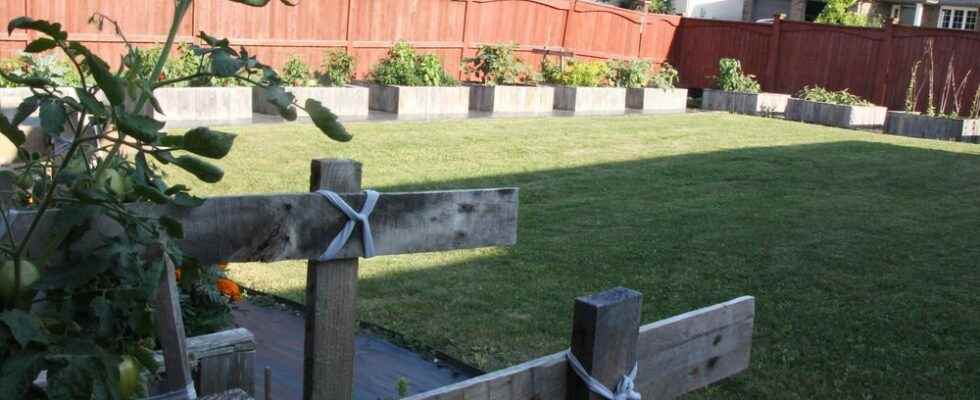
It’s not always a given what will sprout in the 24 raised garden beds in Indira and Kumar Radhakrishnan’s backyard.
Mostly built from repurposed wood pallets in 2020 – the Sarnia couple started with eight raised beds about five years earlier – the beds use compost from the Radhakrishnans’ food scraps and grass clippings, and without any fertilizer or chemicals, the duo said.
Tomato plants pop up as they like from seeds in the compost and are replanted, said Indira, noting the family harvested 60 kilograms of tomatoes in 2021 and gave most of them away.
This year a papaya tree started to grow, and squash always grows on its own, alongside the ghost, jalapeno and sweet peppers, beans, cauliflower, cabbage, beetroot, eggplant, and various other produce planted, almost all sown from seeds from food bought at the grocery store, she said.
“In the summer we use all the fresh, and anything excess we chop them up and freeze them up.”
Initially from south India, they moved to Canada in 1994, lived in Mississauga, then came to Sarnia in 2011, Kumar said.

Their daughter Gayathri, who also helped landscape and grow the garden, said she was surprised when they first arrived to Sarnia and found there was no green bin program for organic waste disposal.
News that Sarnia could have a program soon is welcome, she said.
The city has until 2025 to have a green-bin collection program, cutting down on the volume of things that go to landfill, and repurposing the material for other things, said Andrew Epp, project manager with the city.
“We are basically harvesting what we can from the waste and reusing it in different fashions.”
What that’ll mean in Sarnia isn’t clear yet, he said.
Sarnia started in 2021 with a call for expressions of interest to figure out technology potentials for Sarnia’s needs, hearing from seven vendors all proposing either anaerobic – without air – digestion or composting, a recent city report says.
In July, Sarnia council approved staff to start a negotiated request for proposal (NRFP) process for qualified bidders for food and organic waste processing.
“We’re open to looking at everything that’s available,” Epp said, noting the transition is considered an opportunity to grow the green economy, but Sarnia’s neighboring municipalities won’t be bound by the same provincial requirements because of their population size.

Expectations are a report will go back to council sometime late this year or early next with recommendations, after the NFRP process starts this fall, he said.
“We’re looking for a partner to do this with us … a partner who would have a technology and a business,” Epp said. “We’ll need the private sector involved heavily.”
Epp’s July report notes Bioindustrial Innovation Canada’s Sandy Marshall was consulted, and said food and organic waste as a feedstock is an opportunity for the city, and waste reduction programs fit perfectly with Sarnia’s hybrid chemistry cluster.
Benefits include waste reduction, surplus food rescue, job creation, a reduced reliance on landfills, and the establishment of a circular economy, Epp’s report says.
“But it’s going to be costly,” he said.
More details are expected in subsequent reports, he said, calling it a complicated process.
